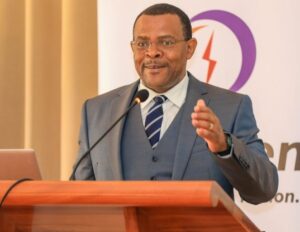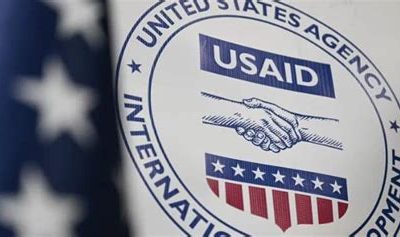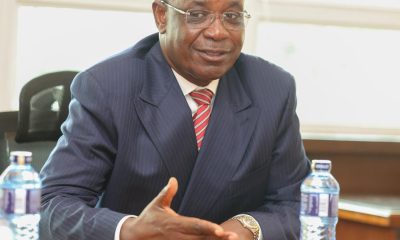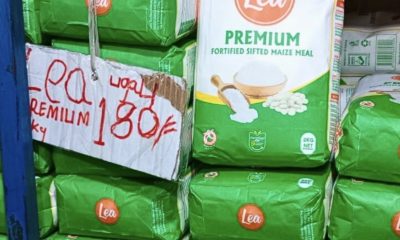State power producer’s procurement system collapses under weight of systematic fraud as whistleblowers reveal elaborate scheme to lock out qualified bidders
The Kenya Electricity Generating Company has been thrust into the eye of a corruption storm after the Public Procurement Review Board exposed a sophisticated scheme to manipulate a Sh2.5 billion carbon credits tender, marking the fourth time the deal has collapsed amid allegations of systematic fraud and insider dealing.
In a damning ruling that strips bare the rot at the heart of Kenya’s largest electricity generator, the board nullified KenGen’s award to Munja Trading Limited and Marwil Energy Holding AS joint venture, citing deliberate manipulation of tender documents, orchestrated disqualification of qualified bidders, and deployment of a non-standard evaluation process designed to predetermine the winner.
The scandal centres on 4.62 million carbon credits generated from KenGen’s crown jewel projects including the Olkaria geothermal complex, Tana and Kiambere hydropower stations, and Ngong wind farm.
These credits, worth $19.6 million on international markets, represent Kenya’s contribution to global climate action.
Instead, they have become the latest cash cow for what sources describe as an entrenched procurement cartel operating with impunity inside the state corporation.
The Sintmond Setup
The targeted destruction of Sintmond Group’s bid exposes the brazen nature of the conspiracy.
Board chairperson Jessica M’mbetsa ruled that KenGen wrongfully disqualified Sintmond for failing to meet an optional requirement, noting that the tender documents used “and/or” rather than mandatory “and” wording.
This was no innocent error. Sintmond had previously secured a $32.05 million contract with KenGen in November 2024 for the same carbon credits, demonstrating both capability and established commercial relationships.
The firm, founded in 2004 and backed by international waste management giant Hitachi Zosen Inova, possessed both technical expertise and financial muscle.
Yet KenGen’s evaluation committee, operating under Acting General Manager for Supply Chain Vincent Mamboleo’s supervision, manufactured grounds for disqualification.
The board was explicit in its condemnation, stating that if KenGen intended to make client references and transaction certificates mandatory, they would have used the word “and” exclusively, compelling bidders to provide both documents without exception.
KenGen’s defence revealed the true motive behind the disqualification.
The corporation claimed Sintmond’s submission showed “insider dealing” rather than legitimate client transactions.
The irony is suffocating. A company with proven delivery history and existing contracts with KenGen was accused of insider dealing, while a joint venture with no disclosed track record sailed through to win a Sh2.5 billion contract.
The Mamboleo Factor
Vincent Mamboleo’s fingerprints are all over this scandal.
The Acting General Manager for Supply Chain personally endorsed a €18.16 million consultancy contract award in March 2025 despite a competing bid that was €1.37 million cheaper, a decision later cancelled by procurement reviewers who found he had overseen the introduction of undisclosed evaluation criteria.
Now, barely six months later, Mamboleo’s procurement unit has orchestrated another spectacular failure.
The two-stage evaluation process he supervised, described by the board as unusual and risky, ensured only Munja-Marwil survived to quote their price.
Both Sintmond and Kyoto Network Limited were eliminated at the preliminary stage through manufactured disqualifications, leaving no competitive pressure on pricing.
The Public Procurement Review Board was scathing in its assessment, warning that the abbreviated evaluation process “risks inadequate vetting of bidders’ competence, particularly where public funds are involved.”
This was procurement by elimination, not competition.
The question hanging over Stima Plaza is simple: who benefits when qualified, established bidders are systematically removed from lucrative tenders?
Pattern of Plunder
The carbon credits scandal is not an isolated incident but the latest manifestation of systematic procurement manipulation at KenGen.
This is the fourth time the carbon credits tender has collapsed, each iteration exposing fresh layers of irregularity.
The previous deal with Sintmond, worth $32.05 million, also faced procurement challenges before completion.
Earlier this year, the Public Procurement Administrative Review Board cancelled another KenGen tender after finding that evaluation committees had “improperly introduced an undisclosed sub-criteria and adopted a comparative methodology not contemplated in the tender document.”
The pattern is unmistakable: tender documents are deliberately drafted with ambiguities, evaluation criteria are manipulated mid-process, and qualified bidders are eliminated on technicalities while favoured contractors advance.
KenGen’s credibility with international development partners now hangs by a thread.
The Olkaria VII consultancy tender that Mamboleo endorsed was meant to secure funding from the European Investment Bank, a partner that demands rigorous procurement standards.
Instead, KenGen delivered a process so flawed it required judicial intervention to correct.
The corporation now finds itself in the absurd position of fighting in court against procurement oversight bodies trying to ensure public money is spent legally.
KenGen has challenged the review board’s ruling, claiming it “clearly pre-determines the winner” and reduces evaluation to “rubber-stamping.”
This argument inverts reality. It was KenGen’s evaluation committees that predetermined winners through manipulated scoring and manufactured disqualifications.
The Leadership Question
Behind these procurement disasters lurks a more fundamental question about KenGen’s leadership.
Multiple sources within the energy sector have revealed that the appointment of Managing Director Peter Njenga was itself mired in controversy, with allegations that a more qualified candidate was bypassed in favour of someone considered more pliable to external interests.

Njenga’s tenure has coincided with an escalation in procurement irregularities across multiple high-value contracts.
From consultancy services to carbon credit sales, the pattern remains consistent: established procedures are subverted, qualified bidders are eliminated, and taxpayers bear the cost through inflated contracts and project delays.
The rot extends beyond individual tenders to the institutional culture at KenGen.
That procurement officers feel emboldened to introduce undisclosed evaluation criteria, disqualify bidders on optional requirements dressed up as mandatory, and defend these actions in court suggests an organization where accountability has collapsed.
When a state corporation entrusted with Kenya’s energy security operates its procurement function like a criminal enterprise, the implications extend far beyond lost revenue.
Kenya’s carbon credits represent more than commercial value.
They are proof of the country’s commitment to clean energy and climate action, generated through billions of shillings invested in geothermal, hydro and wind projects.
These credits should attract premium prices on international markets, funding further expansion of renewable capacity.
Instead, they have become another avenue for corruption, with qualified buyers eliminated to create space for middlemen to extract their cut.
The Public Procurement Review Board has now ordered a complete restart of the tendering process, the only remedy for a system so thoroughly compromised.
But without fundamental reform of KenGen’s procurement governance and accountability for those who orchestrated these scandals, any new tender will simply provide fresh opportunities for the same cartels.
President William Ruto’s administration has made fighting corruption a cornerstone of its agenda. The Director of Public Prosecutions and the Ethics and Anti-Corruption Commission now have before them documented evidence of systematic procurement manipulation at a major state corporation. The question is whether they have the courage to act.
For Vincent Mamboleo, the walls are closing in.
His signature on flawed procurement decisions, his supervision of evaluation committees that violated basic tender procedures, and his defence of indefensible processes have created a paper trail that leads directly to his office.
Whether he acted alone or as part of a broader network is a question investigators must now answer.
For Kenya’s taxpayers, the carbon credits scandal represents another in a long line of betrayals.
State corporations established to serve the public interest have instead become vehicles for private enrichment, their procurement systems weaponized to exclude honest bidders and reward the connected.
Until those responsible face consequences, the looting will continue, and Kenya’s clean energy future will remain hostage to corruption.
The Sh2.5 billion carbon credits tender now lies in ruins, its fourth collapse a monument to institutional failure.
KenGen’s management can blame external forces, question oversight bodies, and lawyer up all they want.
But the evidence speaks for itself: this was not incompetence, it was design. And somewhere in the shadows, those who designed it are already planning their next heist.


 Investigations3 days ago
Investigations3 days ago
 News5 days ago
News5 days ago
 News6 days ago
News6 days ago
 Investigations1 day ago
Investigations1 day ago
 News2 weeks ago
News2 weeks ago
 Business4 days ago
Business4 days ago
 Grapevine5 days ago
Grapevine5 days ago
 Grapevine2 days ago
Grapevine2 days ago

















